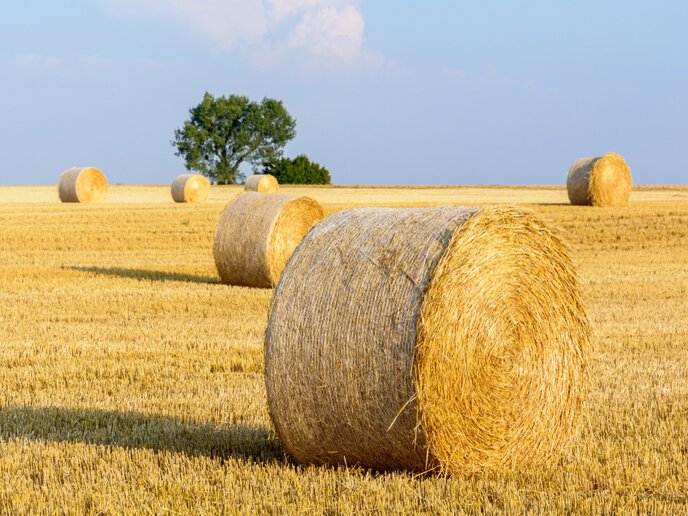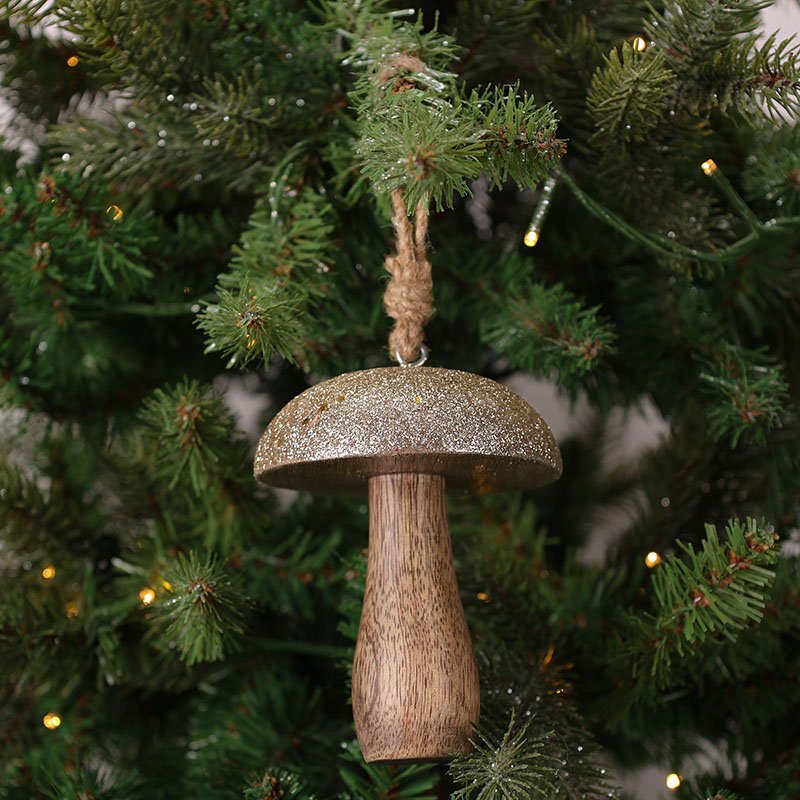MushroomLink Bulletin May 2023
In this edition
Free service: Order your free Smart Mushroom testing kit now
Feature: Bacteriophages in compost – friend or foe
Feature: Sustainable pest and disease management
Podcast: Catchup with the team behind Mycionics
Webinar: Recycling SMS for fertiliser in a circular economy
MushroomLink on the road: Visit us at Hort Connections
Podcast: The Mycionics robotic harvesting system
Canadian company Mycionics Inc has combined AI with robotics in a challenging horticultural setting which could revolutionise the future of mushroom farming.
Looking for a solution to Canada’s workforce shortage, grower Murray Good took his frustrations to the University of Western Ontario in 2012. Two research theses and a decade of hard work later, Mycioncs Inc has emerged as a fresh mushroom picking and packing system that combines mechanical engineering, robotics, and mushroom picking know-how with artificial intelligence.
In this podcast, MushroomLink spoke to the team behind this globally patented system that picks, packs, and weighs mushrooms to meet fresh market quality and size requirements.
This podcast is part of the Hort Innovation funded project MU21003: Mushroom industry communications programme. It was funded through the Mushroom levy fund and contributions from the Australian Government.
The music for this podcast is "Mushroom Boy" by Qurtis, it is licensed under CC BY-NC-SA 3.0. To view a copy of this license, visit https://creativecommons.org/licenses/by-nc-sa/3.0/?ref=openverse
Additional resources
Webinar recording: MU21006 - Recycling spent mushroom substrate (SMS) for fertiliser in a circular economy
Join the MushroomLink team as we hear about the investigation into spent mushroom substrate and how it could be returned back to grain growers as a value-added fertiliser product.
Speakers include:
Dr Kevin Wilkinson, composting specialist, Frontier Ag & Environment (project leader)
Dr Cassandra Schefe, soil scientist, AgriSci Pty Ltd
Mr David Hawkey, agronomist, AgriSci Pty Ltd
Topics covered in the webinar include:
What a circular economy for SMS might look like
Various forms of value-adding including dewatering, palletisation, nutrient enrichment and emerging waste processing technologies
Some of the technical challenges associated with these processes
Economic and logistical challenges
SMS physicochemical characterisation
Supply chain mapping of wheat production (i.e., straw supplies) in relation to mushroom production
The webinar concluded with an open discussion on the next steps - particularly with respect to SMS-fertiliser product development and possible agronomic field trials, with input from participants.
Additional resources
Contact and MU21006 feedback requested
Please provide your feedback to Kevin, David and Cassandra on where you think future work on SMS recycling should be directed:
a) pelletisation of SMS and demonstration to grain growers
b) economic modelling of SMS biofertiliser products using case studies
c) field trials in grain production and/or vegetable production
d) deep-dive into the economics of value-adding to SMS (cost:benefit)
e) market research into biofertilisers
f) product development research
Kevin Wilkinson: kevin@frontieragenvironment.com.au
David Hawkey: david@agrisci.com.au
Cassandra Schefe: cassandra@agrisci.com.au
MushroomLink Bulletin April 2023
In this edition:
Feature: Breeding a better mushroom
Webinar: MU21006 - Recycling SMS for fertiliser in a circular economy
New Project: Mushroom supply chain
What’s new at the MLMRU
Mushroom Link resources – new fact sheet Nitrogen in compost
MushroomLink fact sheet: Nitrogen and compost
What is the role of nitrogen in compost, how does it transform or ‘get lost’ from Phase I through to cropping, and what are the key considerations when adding compost to boost nitrogen in the substrate?
What’s new at the Marsh Lawson mushroom research unit
A new trial, managed by AHR in collaboration with Dr Michael Kertesz, has been set up in the unit to examine the benefits of fertigation. The study is an integral part of the Hort Innovation project Optimise nitrogen transformations in mushroom production (MU17004).
A new trial, managed by AHR in collaboration with Dr Michael Kertesz, has been set up in the unit to examine the benefits of fertigation. The study is an integral part of the Hort Innovation project Optimise nitrogen transformations in mushroom production (MU17004).
Shopper engagement during in-store sampling program
The Mushroom In-Store Sampling Program (MU21503) has reached over 70,000 shoppers in supermarkets across the nation. Conducted throughout 2022, the strategy has delivered important insights into consumer attitudes, which will help inform future marketing activities.
The Mushroom In-Store Sampling Program (MU21503) has reached over 70,000 shoppers in supermarkets across the nation. Conducted throughout 2022, the strategy has delivered important insights into consumer attitudes, which will help inform future marketing activities.
Best practice for the Mushroom Supply Chain
Even the most polished or targeted marketing campaign will not work if the mushrooms on the supermarket shelf look old, brown, and unappealing. The same applies through the whole supply chain; effort spent on growing, picking and packing the best possible mushrooms will be wasted if they are not well managed after.
Even the most polished or targeted marketing campaign will not work if the mushrooms on the supermarket shelf look old, brown, and unappealing. The same applies through the whole supply chain; effort spent on growing, picking and packing the best possible mushrooms will be wasted if they are not well managed after.
Bacteriophages in mushroom compost - friend or foe?
Bacteriophages, or simply ‘phages’, are viruses that infect bacteria. They are some of the most diverse and widespread organisms on the planet. Bacteriophages can be useful agents, targeting harmful bacteria. They can also have negative effects, attacking the beneficial bacteria that make life possible. Friend or foe depends on place and pathogen.
Bacteriophages, or simply ‘phages’, are viruses that infect bacteria. They are some of the most diverse and widespread organisms on the planet. Bacteriophages can be useful agents, targeting harmful bacteria. They can also have negative effects, attacking the beneficial bacteria that make life possible. Friend or foe depends on place and pathogen.
Sustainable Pest and Disease Management
A new Hort Innovation project, led by Dr Aimee McKinnon from Agriculture Victoria, investigates effective alternatives to complement current pest and disease management strategies for the mushroom industry. Mushroom parasites and bacterial diseases cause heavy losses in commercial mushroom farms worldwide, and the risk of such outbreaks in Australia has been identified as a major threat to the industry.
A new Hort Innovation project, led by Dr Aimee McKinnon from Agriculture Victoria, investigates
effective alternatives to complement current pest and disease management strategies for the mushroom industry. Mushroom parasites and bacterial diseases cause heavy losses in commercial mushroom farms worldwide, and the risk of such outbreaks in Australia has been identified as a major threat to the industry.
MushroomLink Bulletin March 2023
In this edition
Autumn 2023 magazine out now
Feature: Horticulture meets robotics meets AI
Interview: Geoff Price from Giorgi Mushrooms
Podcast: CSIRO researcher Dr Damien Belobrajdic and nutritionist Dr Falvia Fayet-Moore (NRAUS) discuss the narrative around mushroom nutrition
Marketing update: 70,000 shoppers engaged with the in-store sampling program
Mushroom Link resources
AI - Revolutionising the future of mushroom farming
Mushroom farms world over struggle with labour shortages. The work is difficult and the conditions sometimes uncomfortable. In Canada, this challenge is not a recent one with the farming industry struggling with workforce shortages for at least ten years. Thanks to the revolutionary advances in technology, automation has emerged as a very real and viable solution.
Paulette Baumgartl and Dr Jenny Ekman spoke to the team behind an intelligent solution.
Mushroom farms world over struggle with labour shortages. The work is difficult and the conditions sometimes uncomfortable. In Canada, this challenge is not a recent one with the farming industry struggling with workforce shortages for at least ten years. Thanks to the revolutionary advances in technology, automation has emerged as a very real and viable solution.
Paulette Baumgartl and Dr Jenny Ekman spoke to the team behind an intelligent solution.
Breeding a better mushroom
Breeding mushrooms presents significant challenges. Improvements in quality and productivity have largely been achieved through better growing techniques, with breeding playing only a minor role. So how do you 'cross pollinate' a mushroom, as Mendel did with his famous peas? Dr Jenny Ekman investigates.
Breeding mushrooms presents significant challenges. Improvements in quality and productivity have largely been achieved through better growing techniques, with breeding playing only a minor role.
Ever since Gregor Mendel started growing sweet peas in the monastery garden in 1857, we have come to understand that the traits of parents are combined in their offspring. This is the basis of breeding programs for everything from apples to zucchini. Creating a hybrid is relatively easy to manage when cross pollinating flowers; you simply add the pollen of one flower to the stigma (female part) of the other. But how do you ‘cross pollinate’ a mushroom? Dr Jenny Ekman investigates.
Giorgi Mushroom Company
Geoff Price may be the son of our own mushroom-growing legend Graham Price, but he has definitely forged his own way in the industry. A mushroom grower since he was eight years old, perhaps it is not
surprising he’s now not only technical director of Giorgi Mushroom Company in Pennsylvania, but also chair of the American Mushroom Institute.
MushroomLink Magazine Issue 04
The MushroomLink magazine Autumn edition is available now online. If you’re not yet receiving our magazine, subscribe here for your e-copy.
Articles
Accurate identification underpins effective pest and disease control
Mushroom Bulletin February 2023
In this edition:
Mushroom farming in Ukraine
Developments in mushroom harvesting
Presentation – Gordon Rogers on the MLMRU and PCR Disease Testing
Podcast – Jack Lemmen in new developments in harvesting
MushroomLink resources
MushroomLink Bulletin January 2023
In this edition
Alternative casings and a sustainable mushroom industry
The Marsh Lawson Mushroom Research Centre
Webinar – Food safety certification: watch the recording
Podcast – Ralph Noble comments on the future of the industry
Smart Mushroom in the news
In case you missed it
Webinar Recording: Food safety certification FAQs with Clare Hamilton-Bate
Confused about food safety certification? Bombarded with requirements that are not relevant to mushrooms? Worried about the auditor coming?
Food safety expert Clare Hamilton-Bate will launch our 2023 webinar series to answer all your FAQs and bust some common myths. There will also be an opportunity to ask Clare questions at the end of the webinar.
This webinar was produced as part of the MU21003: Mushroom industry communications program project. It is funded by Hort Innovation through the Mushroom levy and Australian Government contributions.
MushroomLink Bulletin December 2022
In this edition:
MushroomLink summer issue out now
Safe mushroom certification
Introduction to food safety for mushroom farm workers
Dr Jenny Ekman at the AMGA conference
New factsheet – safe chemical storage
Upcoming webinar - Food safely certification FAQs with Clare Hamilton-Bate
Fact sheet: Storing Chemicals Safely
A new factsheet on chemical storage – and keeping your shed clean, safe and organised – is now available. The factsheet includes:
Important design elements for a good chemical shed
Tips for storing different classes of chemicals
Key inclusions for worker health and safety





































